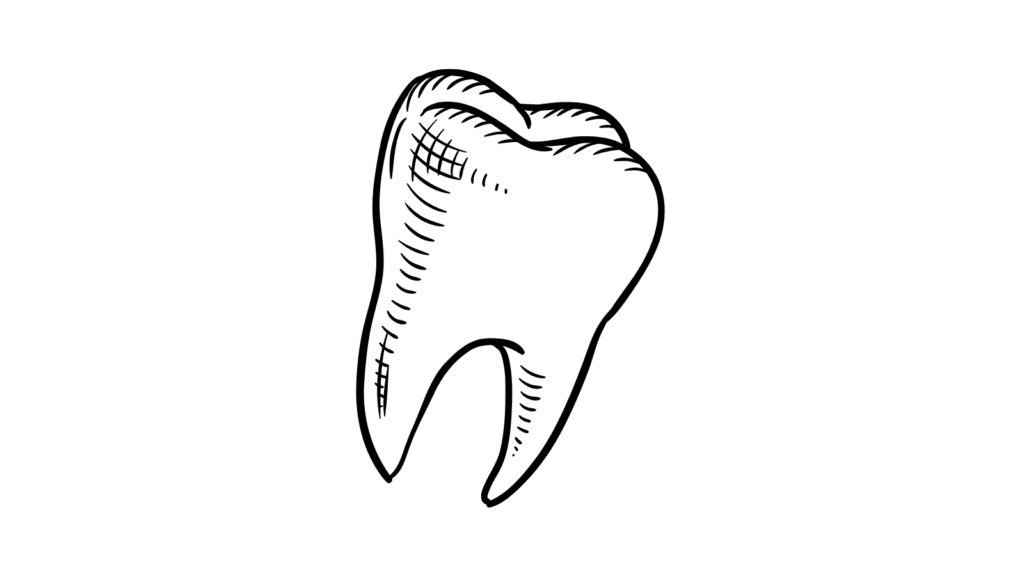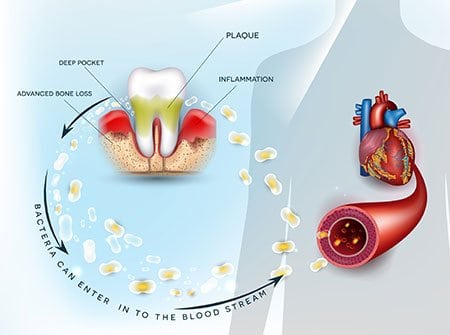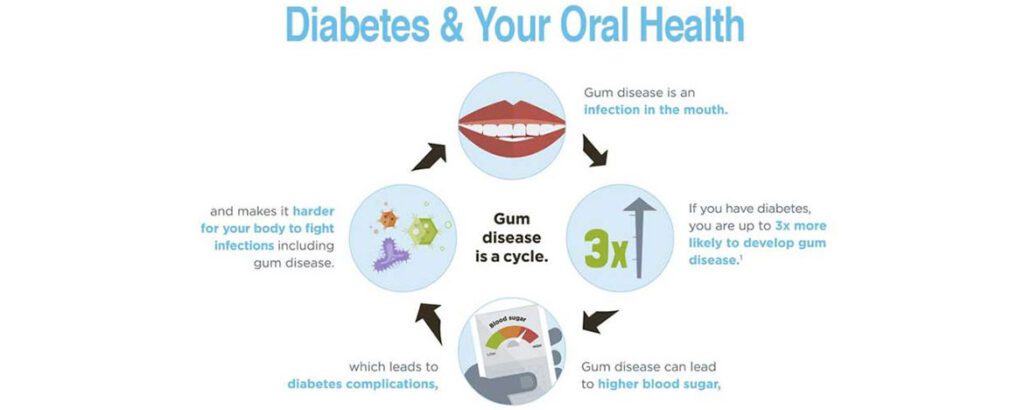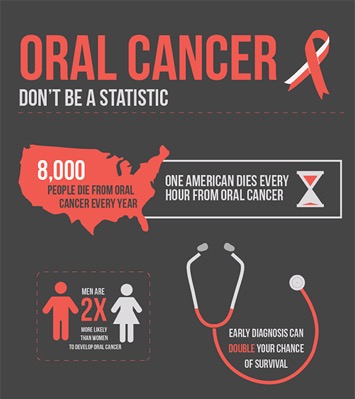Longevity and Oral Health: A Healthy Mouth, A Longer Life

When we think about living a long, healthy life, we usually focus on factors like nutrition, physical exercise, and mental well-being.
However, one often overlooked aspect of overall health and longevity is oral care.
A healthy mouth doesn’t just mean a bright smile—it can increase your chances of living a longer, disease-free life. Research shows that good oral hygiene can prevent chronic diseases and health complications that shorten life expectancy.
Understanding the Mouth-Body Connection
The link between oral health and general health is more significant than many people realize.
Your mouth is filled with bacteria—most of which are harmless. But poor oral hygiene can allow harmful bacteria to grow and spread, causing infections and other systemic conditions.
Infections in the mouth trigger inflammation, which is a key factor in several life-threatening diseases.
For example, gum disease (also called periodontal disease) has been associated with a higher risk of heart disease, diabetes, respiratory issues, and even dementia.
Studies suggest that when the gums are inflamed, harmful bacteria enter the bloodstream and travel to other parts of the body, which causes these chronic conditions.
So keeping good oral hygiene not only helps you avoid painful dental issues but also improves your overall well-being and longevity.
Key Health Issues Linked to Poor Oral Health
Let’s take a deeper dive into some of the specific health conditions that are closely tied to oral hygiene and how they may impact longevity.
1. Cardiovascular Disease
Studies have found that poor oral health, particularly gum disease, is associated with an increased risk of heart disease.
This is because inflammation from gum disease can lead to the narrowing of blood vessels, which causes a buildup of plaque in arteries (atherosclerosis).
This condition can result in heart attacks, strokes, and other cardiovascular complications, all of which can be fatal. By taking care of your gums and teeth, you can significantly reduce the risk of heart-related issues.

2. Diabetes
The relationship between diabetes and oral health is a two-way street. People with diabetes are more prone to developing gum disease due to their weakened immune systems.
On the flip side, gum disease can make it more difficult for people with diabetes to control their blood sugar levels, potentially leading to complications such as kidney disease, vision problems, and nerve damage.

Managing oral health through regular cleanings and check-ups is important for people with diabetes to control blood glucose levels and avoid long-term complications.
3. Respiratory Infections
Bacteria from gum disease can be inhaled into the lungs, leading to infections such as pneumonia or chronic obstructive pulmonary disease (COPD).
This risk is especially concerning for older adults, as respiratory infections are a leading cause of death in the elderly. Regular dental cleanings and good oral hygiene can help prevent these infections imrove respiratory health.
4. Cognitive Decline and Alzheimer’s Disease
Emerging research suggests that bacteria from gum disease may travel to the brain and contribute to conditions like Alzheimer’s disease.
While more studies are needed to confirm the link, the connection between inflammation caused by poor oral health and cognitive decline is becoming more evident. Taking care of your gums could play a role in preserving brain function and preventing dementia-related conditions later in life.
5. Cancer Risk
People with poor oral hygiene or gum disease may also be at a higher risk for certain types of cancer, especially oral and throat cancers.
Some studies have even suggested a connection between gum disease and an increased risk of pancreatic cancer. Regular dental check-ups can help catch early signs of oral cancer.
Oral Health Habits for Longevity
Given the significant impact that oral health can have on the rest of your body, it’s important to have habits that promote a healthy mouth.
Here are some key steps you can take to protect your oral health and overall longevity:
1. Brush and Floss Daily
Brush your teeth at least twice a day with fluoride toothpaste and floss once daily to remove plaque and prevent the buildup of harmful bacteria.

Plaque is the leading cause of gum disease, and preventing it can significantly reduce the risk of various health conditions.
2. Regular Dental Check-Ups
Even with the best at-home care, professional cleanings and exams are crucial. See your dentist every six months to remove hardened plaque (tartar) and check for any early signs of gum disease or tooth decay.
If you rely on Medicaid for dental coverage, it’s important to find a provider who accepts your insurance. For example, residents of Colorado can search for a Medicaid dentist Colorado to make sure they get the dental care they need without worrying about the cost.
If you have ongoing dental issues from a dentist’s past mistake, dental negligence claims can be made with the help of a law firm to get a payout to help with recovery.
3. Stay Hydrated
Water plays an essential role in maintaining oral health. It helps rinse away food particles and bacteria, and it also promotes the production of saliva, which is vital for neutralizing harmful acids that can lead to tooth decay.

4. Eat a Balanced Diet
A diet rich in fruits, vegetables, and lean proteins can help protect both your oral and overall health. Avoiding excessive sugar and acidic foods can prevent tooth decay and enamel erosion, which are common causes of dental issues.
Learn more about how you can make nutrition choices to improve your health here.
5. Quit Smoking and Avoid Tobacco Products
Smoking is one of the leading risk factors for gum disease and oral cancer.

It also weakens the immune system, making it harder for the body to fight off infections in the mouth. Quitting smoking can significantly improve your oral health and reduce the risk of life-threatening conditions.
6. Manage Stress
Chronic stress can lead to habits like teeth grinding (bruxism), which can wear down enamel and lead to bigger dental problems.
Stress also weakens the immune system, making you more susceptible to infections like gum disease. Managing stress through relaxation techniques, exercise, and other healthy habits can positively impact both your mental and oral health.
The Role of Oral Health in Aging Gracefully
As we age, maintaining oral health becomes increasingly important, especially since older adults are more vulnerable to dental issues like gum disease and tooth loss.
For those experiencing tooth loss, 4M Dental Implant Center offers a long-term solution that can improve both oral function and overall well-being.
These problems, if left untreated, can lead to other serious health issues that may shorten life expectancy. Additionally, tooth loss can impact nutrition, as it may limit an individual’s ability to eat certain healthy foods, which can, in turn, affect overall health.
By maintaining good oral hygiene practices and seeking regular dental care, older adults can reduce their risk of developing age-related oral health problems and improve their chances of living a long and healthy life.
Final Thoughts: Healthy Mouth, Healthy Life
Longevity is not just about avoiding disease—it’s about maintaining quality of life for as long as possible.
Whether it’s preventing heart disease, managing diabetes, or reducing the risk of cognitive decline, the evidence is clear: a healthy mouth is key to a long, healthy life.



